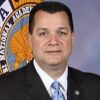Entrepreneur and author Jay Baer once said, “Content is fire. Social media is gasoline.” Although Baer’s quote is directed toward marketing in the private sector, I’ve certainly seen plenty of fire over the years when it comes to both personal and professional social media posts by those in public safety.
There’s no denying the power of digital information. Our ability to place or retrieve information through this medium is astounding. It’s no wonder since 59% of the global population (4.7 billion users) spend roughly . Here in the U.S. alone, 72% of Americans use social media, accessing their accounts . Simply put, the digital age is part of our normal routine.
Those who work in public safety have additional considerations when it comes to social media. Whether posting as an individual or part of your agency’s official online presence, it’s important to realize the impact your message can have (good and bad).
Social media and the individual
As public safety professionals, we already know we live in a glass house. Think about the impact you have just by donning the uniform. Maybe you have a take-home vehicle that sits in front of your residence. Your neighbors are keenly aware of your occupation, just by the statement you make when wearing a uniform or driving a marked vehicle. In a small town, everyone knows who you are.
Take it a step further and consider your online presence. Do you have a social media account? Chances are, many of you have more than one. Nothing wrong with that; however, there are things to be aware of. Most important is the impact your words have when they are connected to your occupation. In this line of work, we don’t have the luxury of turning off the occupation when our shift ends. Quite the contrary; until retirement, we are never really “off-duty.” Sure, we have leave days and even take vacation. But how many occupations have the ability to recall employees, cancel vacations, and require all hands on deck when an emergency situation unfolds?
The same is true about posting as an individual on social media. Sure, you have rights like any other citizen and can largely . But there are some limitations people in other occupations don’t have to worry about.
Jonathan Downes, a labor and employment attorney from Columbus, Ohio, puts this into perspective. , “there’s no such thing as privacy on social media, even on a private page. Public employees leave some of their constitutional rights at the door in their service of the public.” Most legal professionals agree that social media postings are protected unless there’s a link to the public safety employee’s job duties, responsibilities, or the employing organization. Any of those details could easily connect the job to the , which is where most people get into trouble.
In (547 U.S. 410, 421 (2006)), the U.S. Supreme Court determined that certain speech by public employees is never protected. , “when public employees make statements pursuant to their official job duties, the employees are not speaking as citizens for First Amendment purposes, and the Constitution does not insulate their communications from discipline.”
Garcetti and other prominent court decisions on this matter ultimately led to a four-part analysis, which determines , and any :
- The speech must not be made as part of the employee’s official job duties.
- The speech must be regarding a matter of public concern.
- The employee’s First Amendment speech right must outweigh the public employer’s interest in promoting the efficiency of the public service it performs.
- The employee must show causation between the speech and the adverse employment action, and, if the employee makes such a showing, the employer must then show that it would have taken the adverse action regardless of the speech.
When you consider how certain messages on social media catch wind, it’s easy to understand the impact some posts can have on both the employee and the agency. We know from experience that the more outrageous the post made and the more high profile the person, the greater likelihood of their post going viral.
There are other important factors public safety employees should consider. Once content is posted (even to a private account), you lose control of where that information goes. Others may take that content and publish or forward it through other online mediums. What appears to the author as an innocent post could suddenly change hands hundreds of times, and also change context.
For public safety officials, defense attorneys also monitor this information and can use it against you in court. It’s equally important to consider the aspect of posting personal content about yourself or your family.
Finally, if you use social media, make sure you do so in a manner that conforms to your agency’s policy. Many organizations establish limitations on what content employees may post on their personal pages. :
- Discloses your employment with the agency.
- Displays agency logos, uniforms or other identifying items.
- Displays any photo or similar means of personal recognition that may cause you or others to be identified as an employee of the agency.
And just because you won’t get into trouble with the agency, doesn’t mean there aren’t civil considerations. As a general rule, public safety personnel should also avoid:[5]
- Publishing or posting false information that harms the reputation of another person, group or organization.
- Publishing or posting private facts and personal information about someone without their permission that have not been previously revealed to the public, are not of legitimate public concern, and would be offensive to a reasonable person.
- Using someone else’s name, likeness, or other personal attributes without that person’s permission for an exploitative purpose.
- Publishing the creative work of another, trademarks, or certain confidential business information without the permission of the owner.
Engaging within the virtual realm is a personal decision. However, as a public safety employee, there are numerous strings attached and it’s important to be well-informed before posting content on your personal page. With high-profile positions come bigger responsibilities. The world is watching and it’s important to be on the content you post or support on all your social media accounts. Additionally, don’t forget that what goes on the internet typically remains there. You never know where life and the job will take you. What appears like an innocent post early in your career can certainly come back to haunt you later in life.
Social media and the public safety agency
We’ve focused on social media from a personal standpoint, but what about using this medium to ?
We know from experience our agencies can leverage social media to inform the public, bolster recruiting and even create a brand or image for the organization. Marketing guru Shane Barker once said, “The goal of social media is to turn customers into your personal evangelists.”
But simply having a presence on social media isn’t enough to foster or maintain community relationships. Once your agency decides to incorporate social media into its outreach portfolio, there should be “, developing a range of objectives, and delegation of responsibility for social media management.”
Most public service agencies use these platforms to broadcast and announce public safety-related events, provide status updates, report notable actions by agency personnel, and solicit community input. The overall goal is to improve community relations while highlighting the valuable services public safety organizations provide.
Although many organizations already use social media (and have been doing so for quite some time), it’s important to review your content and the agency policies that support this effort. In 2015, the International Association of Chiefs of Police (IACP) conducted a . The survey found that over 96% of the agencies used social media in some capacity, but only 89.5% either had a policy or were in the process of drafting one that regulates how it’s used.
Agency policy should outline criteria for posting content, in addition to identifying responsible parties involved with approving material and/or responding to or removing, editing and posting content. Consider best practices and seek legal advice when conducting your assessment. If your agency uses social media across multiple platforms, it’s important to ensure consistency in messaging. :
- An introductory statement that clearly specifies the purpose and scope of the agency’s presence on the page
- A statement indicating the page is maintained by the agency
- A link to the agency’s official website
- The agency’s contact information
- Disclaimers regarding page monitoring, statements of opinions posted by visitors, and any other required public disclosures
- A disclaimer stating the opinions expressed by visitors of the page do not necessarily reflect the opinions of the agency
If your agency hasn’t done so already, consider appointing personnel responsible for coordinating the organization’s social media efforts. Keep your social media policies up to date and strictly enforce policy requirements related to both personal and organizational social media use. It’s also imperative the agency head and key stakeholders are kept informed as your program is established. Hot-button topics should also be monitored closely.
Think before you post
Whether using social media as an individual or as an agency, it’s important to consider the impact your words can have on you and the organization. In 2017, the U.S. Army provided useful guidance on what they refer to as, “.” This initiative directs soldiers to:
- THINK about the message being communicated and who could potentially view it now and for years to come;
- TYPE communication consistent with the seven Army values;
- POST only messages that demonstrate dignity and respect for self and others.
This is sound advice for anyone or any organization using social media. Remember the power of your words, especially since those working in public safety often live high-profile lives. In the words of Amy Jo Martin, CEO of Digital Royalty, “Social media is the ultimate equalizer. It gives a voice and a platform to anyone willing to engage.”












